
Is there anything else you would like to share with our readers?
Gijs: 'What I take from this conversation is that we have to be even more aware of the different situations around the world. We develop our innovations from a European perspective, but the situation in – for instance – Latin America or Oceania can be totally different. Being more aware of that can add a lot of value for our people working on the product developments of tomorrow.'
How do you see Lely, the market and farms developing towards 2035?
Alejandro: 'We think a lot about tomorrow, but we also look further ahead into the future. We agree with Lely on the importance of customer satisfaction, which also includes the satisfaction of the consumer. Dairy needs to be traceable and affordable for everyone. Moreover, the consumer demands transparency about welfare, both of our animals and our employees. In 2035, we expect that people will want to work fewer hours. This means offering even more options to work remotely. We’re already moving towards that with our robots, but I expect it to increase even further.'
Gijs: 'Lely shares that vision. Consumer buy-in is indeed one of the most critical aspects of the Farm of the Future. If we can’t develop a farm system that meets the dairy consumer’s approval, we’re not doing a good job.'
Gijs: 'The world is changing rapidly. Considering the fact that the development of our new innovations takes six to eight years, we need to think ahead and understand what farming and Lely will look like in 2035. To stay relevant both now and in the future, we’ve identified three long-term focus points: technological leadership, satisfaction, and a balanced portfolio.
We want to maintain our technological leadership in robotics and data. Being a family business, having a long-term vision and making high investments in innovation help us to keep that position. Satisfaction not only applies to our customers – the farmers – but also to our employees and Lely Centers in the field. We need them; we cannot do it alone. And last but not least, in terms of our balanced portfolio, Lely is not just active in robotic milking, but also in robotic feeding and manure cleaning. With Horizon and the valuable data provided by our robots, we can add much more value to a farm than milking alone.'
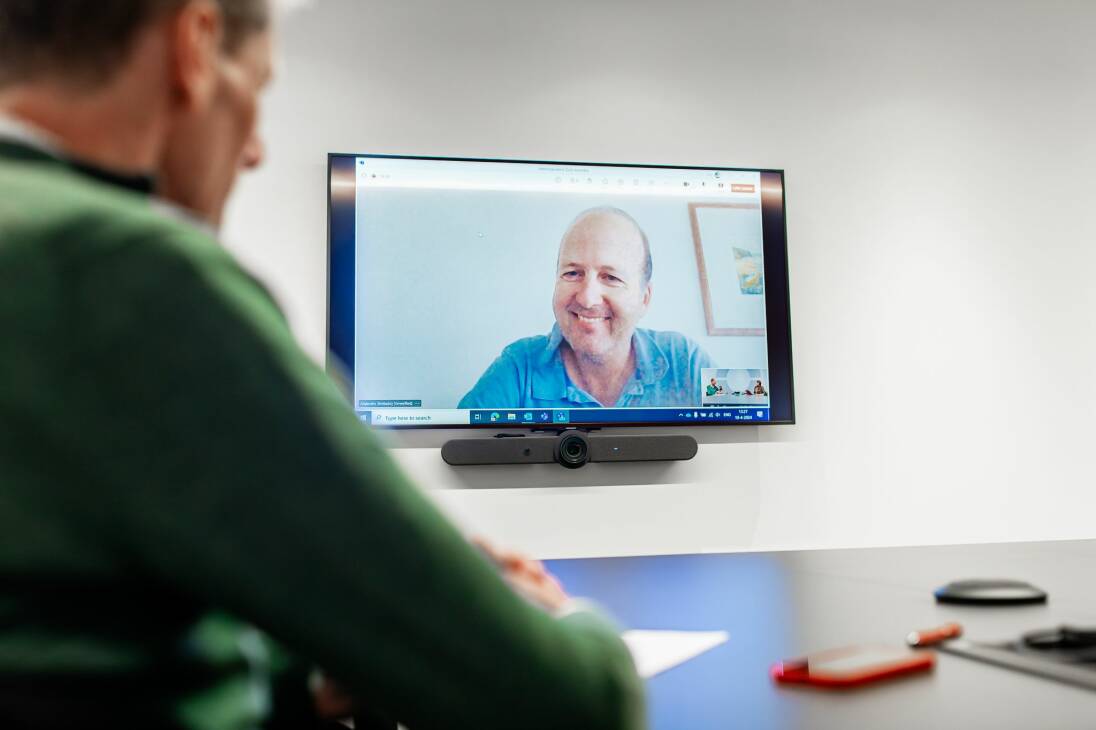
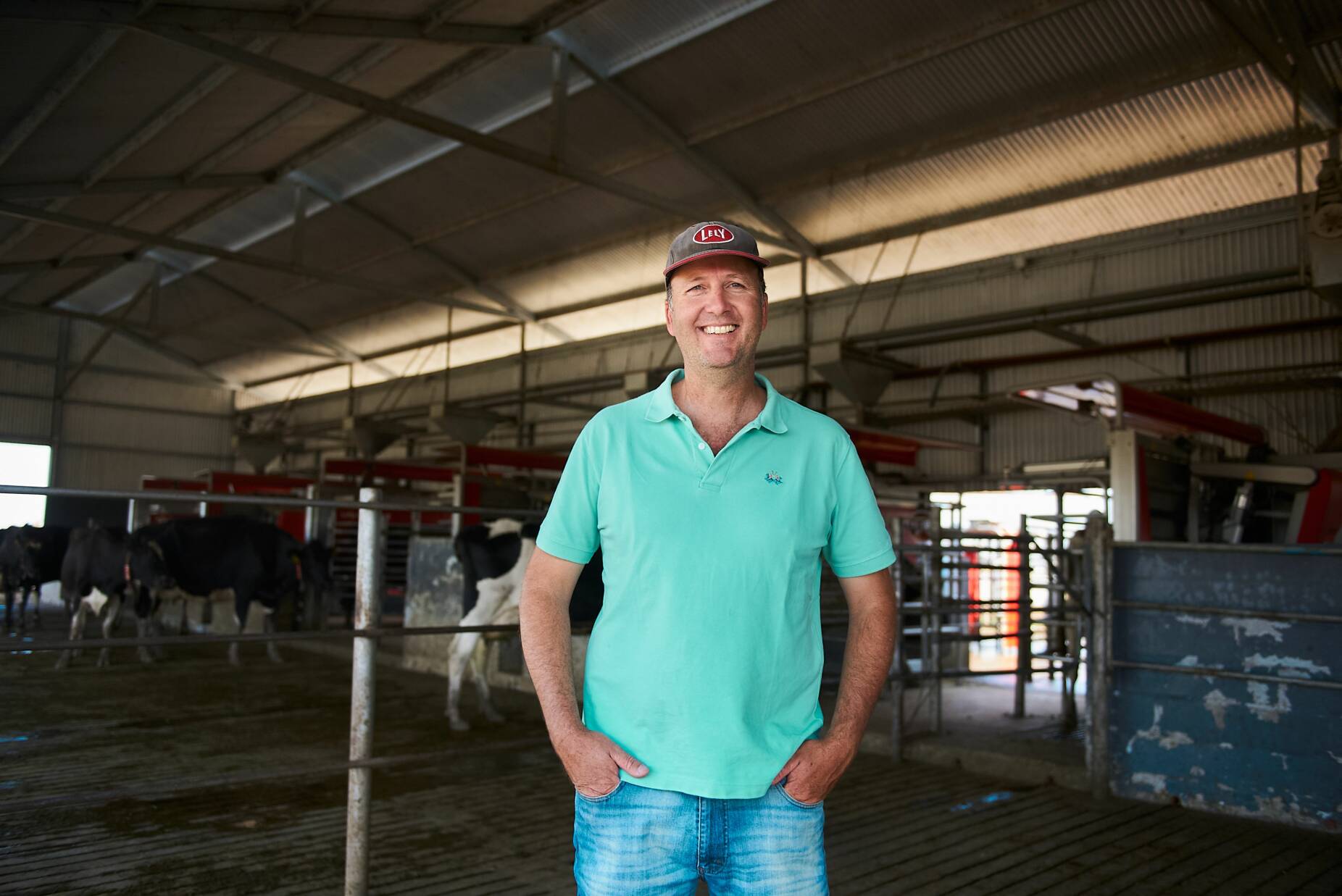
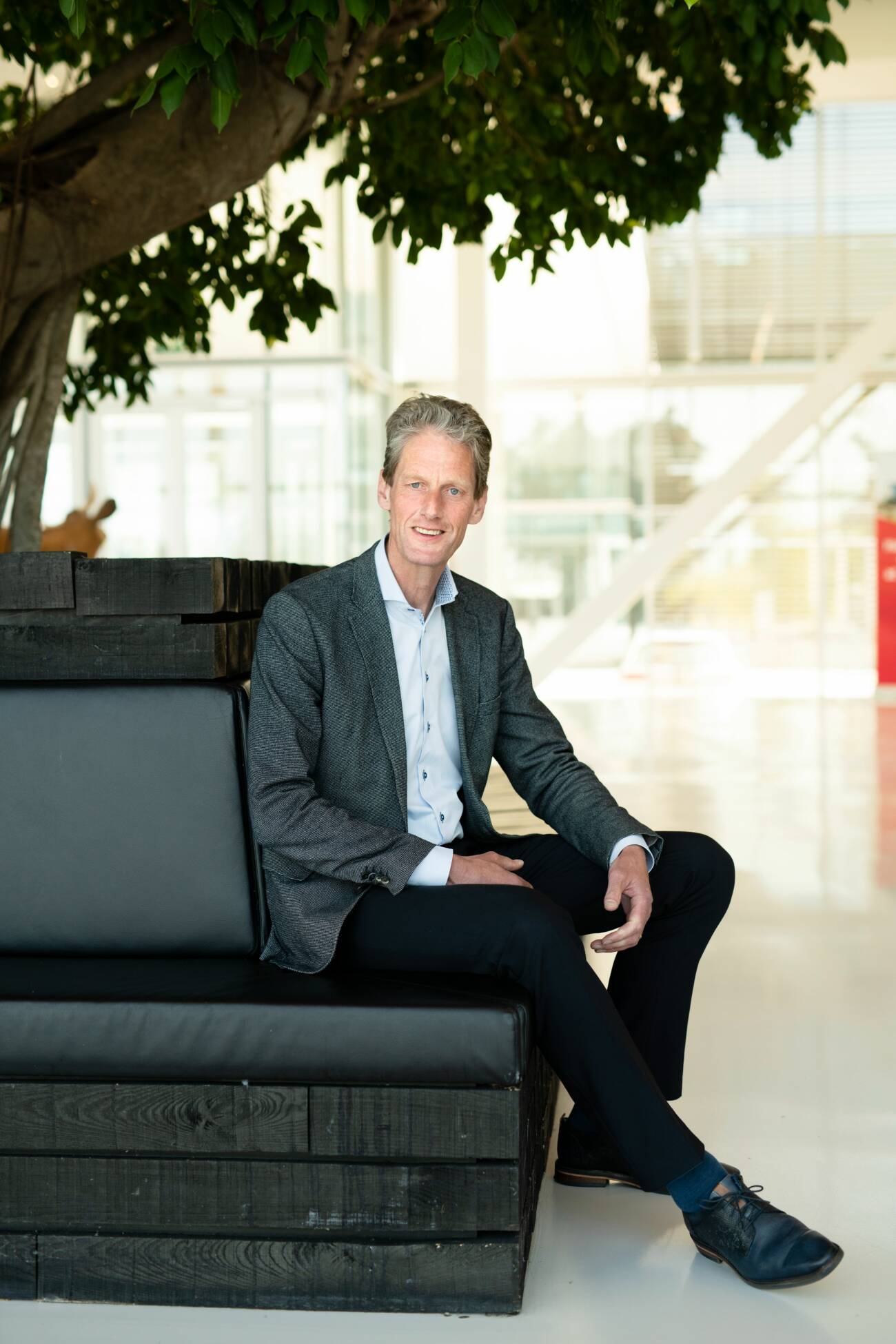
Gijs Scholman
Gijs joined Lely as Chief Commercial Officer in April 2013
He grew up on a dairy farm and studied animal science at the Agricultural University of Wageningen, the Netherlands. He also did an MBA at Henley Management College
He has a passion for the outdoors and enjoys gardening, hiking, running and skiing
Alejandro Mulcahy
Since graduating from university in 1998, Alejandro has worked at several different dairy businesses, including in New Zealand to gain international experience
Since 2002, Alejandro has been managing ‘Las Chicas’, the family dairy farm he grew up on in Nueve de Julio, Buenos Aires, Argentina
He is married to Silvina, who is a veterinarian and shares his passion for dairy farming. They are the proud parents of Juan Martin (17) and Emilia (13)
Alejandro, do you recognise your farm in the farm types that Lely has identified?
Alejandro: 'I recognise aspects of all three different farm types. We are mainly grass-based; our cows spend all of their time in the field and get most of their nutrition from grass. We have approximately 1,500 cows, which makes us a pretty large farm by Argentinian standards. And our farm is family-owned. As a grass-based farm, we are facing a strong need to adapt in the years to come. In recent years, we have experienced long periods of drought and extensive heatwaves. This affects not only the grass growth, but also our cows. One of our main challenges is how to adapt our farming systems to this new climate situation.'
"One size fits none", which is why we have identified three unique farm types as part of our vision on the Farm of the Future. Each farm type – family-owned, grass-based and large-scale – is shaped by different drives and operating routines. Although Alejandro Mulcahy’s farm in the Argentinian province of Buenos Aires can be classified as grass-based, it has aspects of all three farm types. For this edition of Boardwalk, Alejandro talked to our Chief Commercial Officer Gijs Scholman: 'If we can’t develop a farm system that meets the dairy consumer’s approval, we’re not doing a good job.'
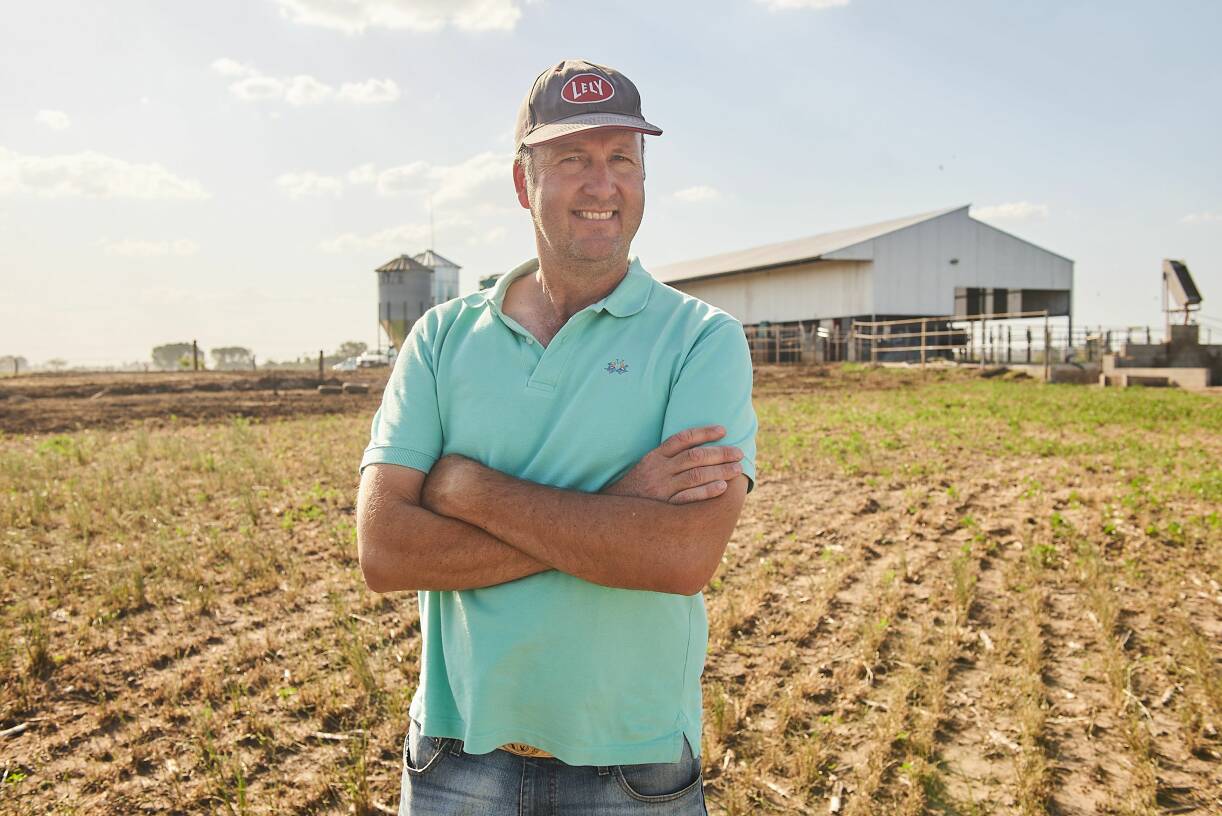
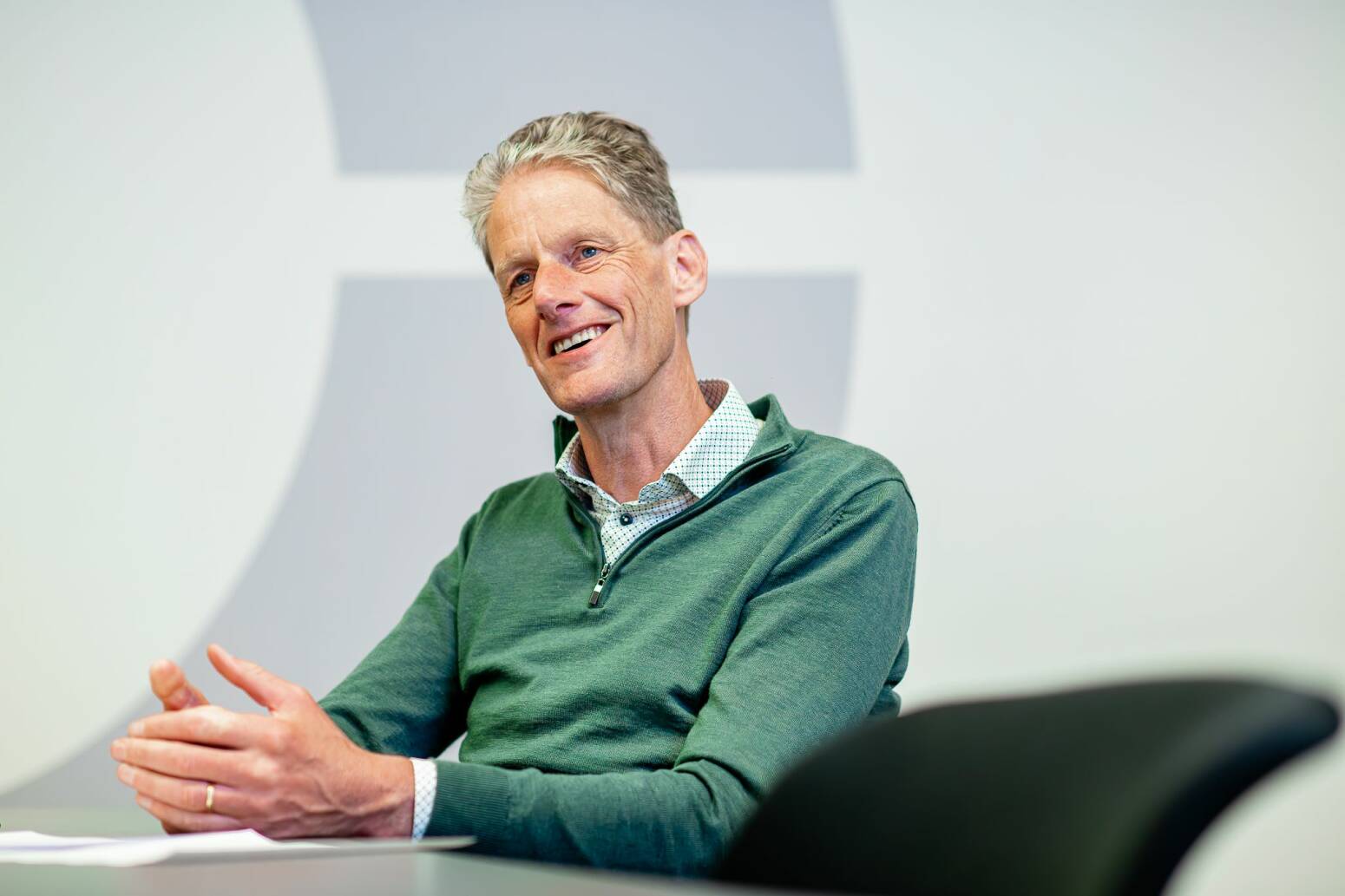
Considering these circumstances, how can Lely help you make the farm more futureproof?
Alejandro: 'Besides finding out which cows are better able to adapt to this kind of climate, I think there is a huge opportunity when it comes to the grass. In Argentina, we have a lot of different grass types, like ryegrass, fescue and alfalfa. In times of drought, we use more alfalfa, which can resist the heat. How great would it be if we could measure the amount of grass available and the growing rates? Such a tool would allow us to use the grass more efficiently and lower the costs. Additionally, in the case of drought and heat, cows prefer to eat beneath a roof. This might offer opportunities for the use of Lely Exos to harvest and gather fresh grass. There is a lot of work to be done!'
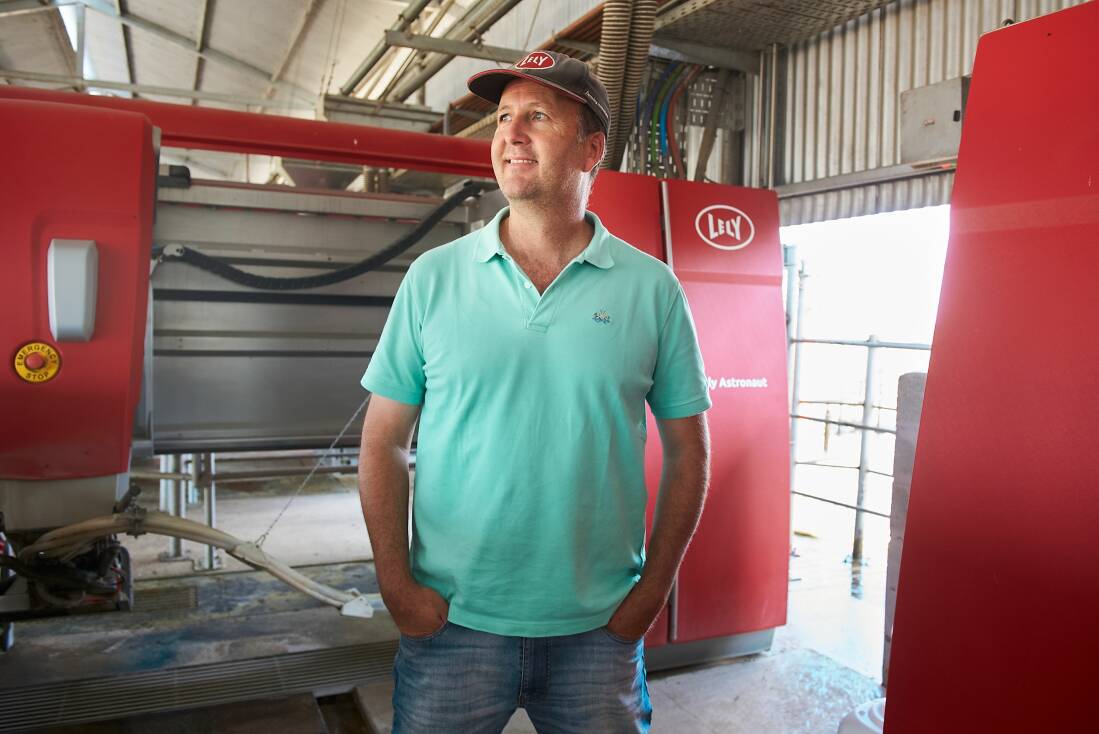
'We need to understand what farming will look like in 2035'
BOARDWALK
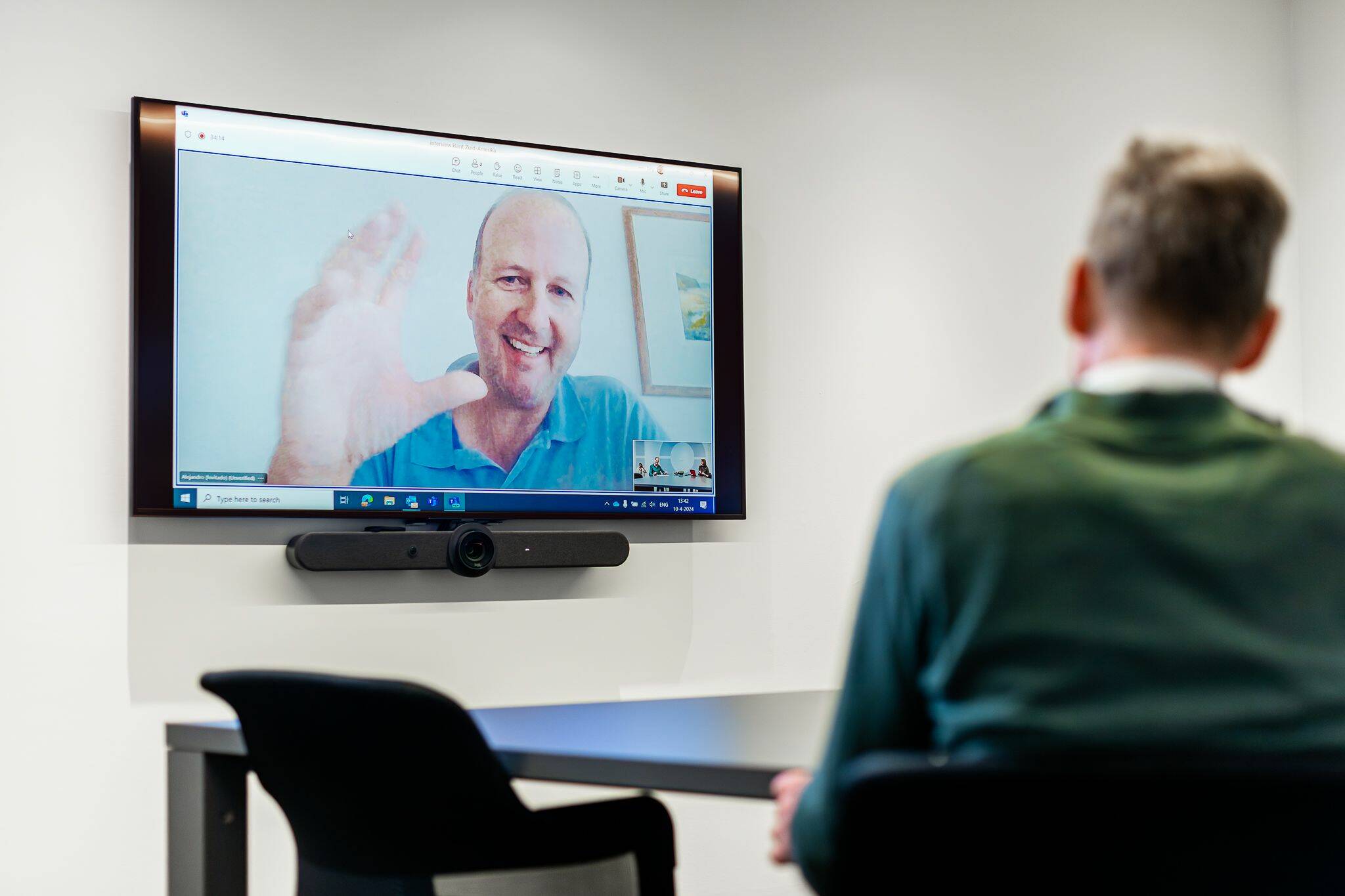
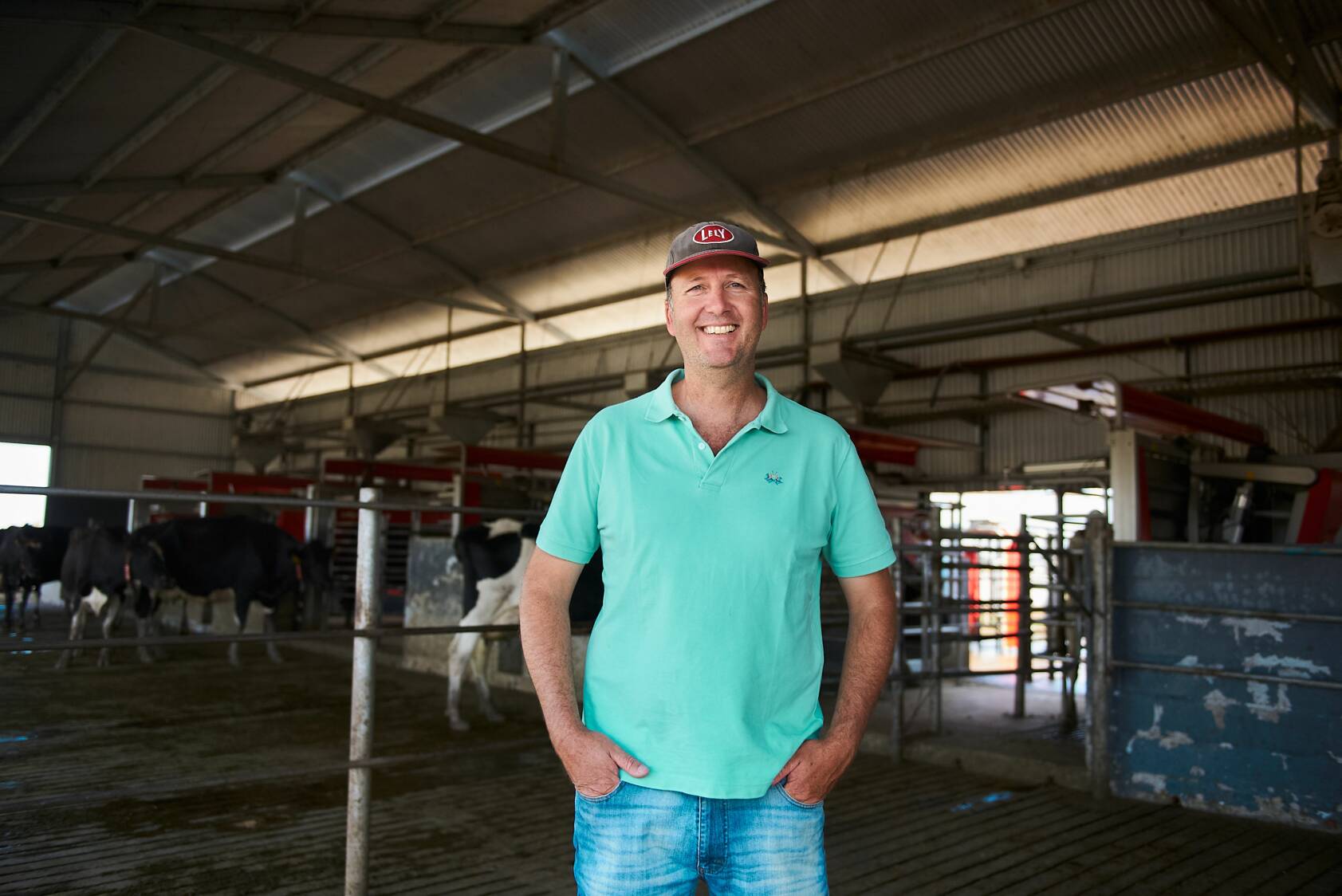
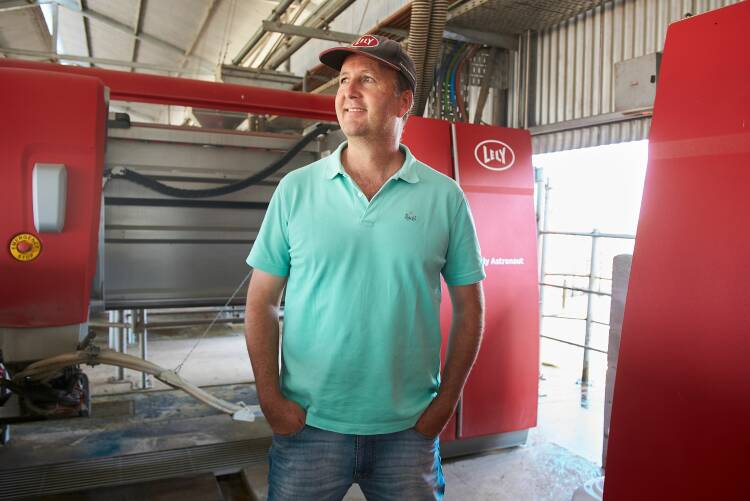
Is there anything else you would like to share with our readers?
Gijs: 'What I take from this conversation is that we have to be even more aware of the different situations around the world. We develop our innovations from a European perspective, but the situation in – for instance – Latin America or Oceania can be totally different. Being more aware of that can add a lot of value for our people working on the product developments of tomorrow.'
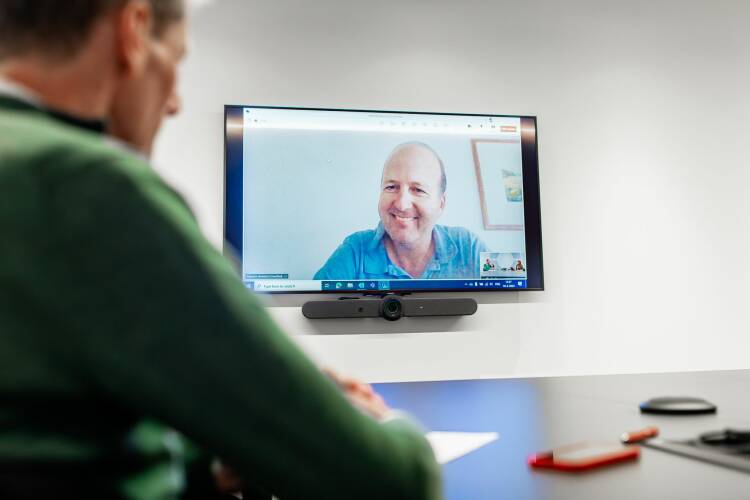
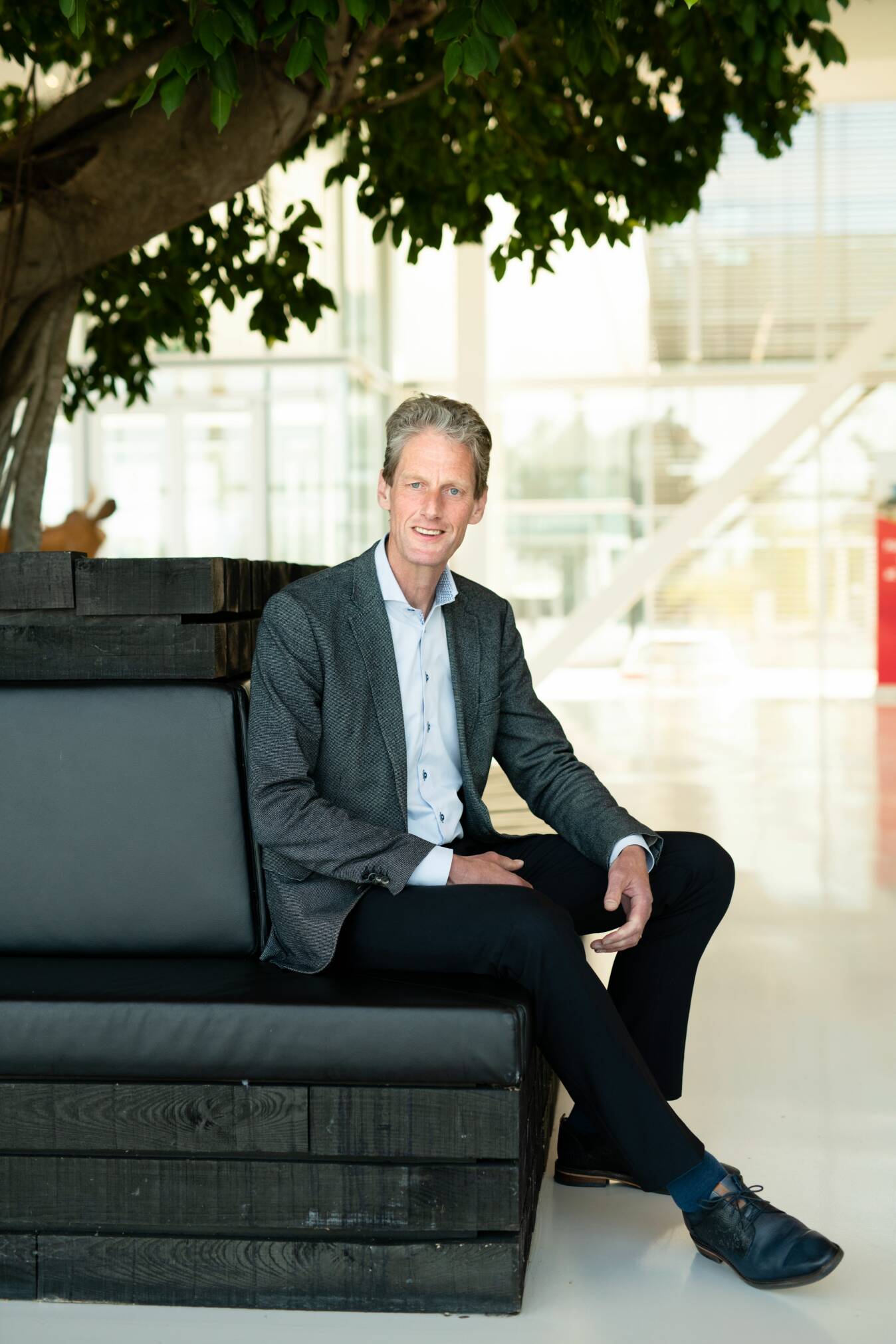
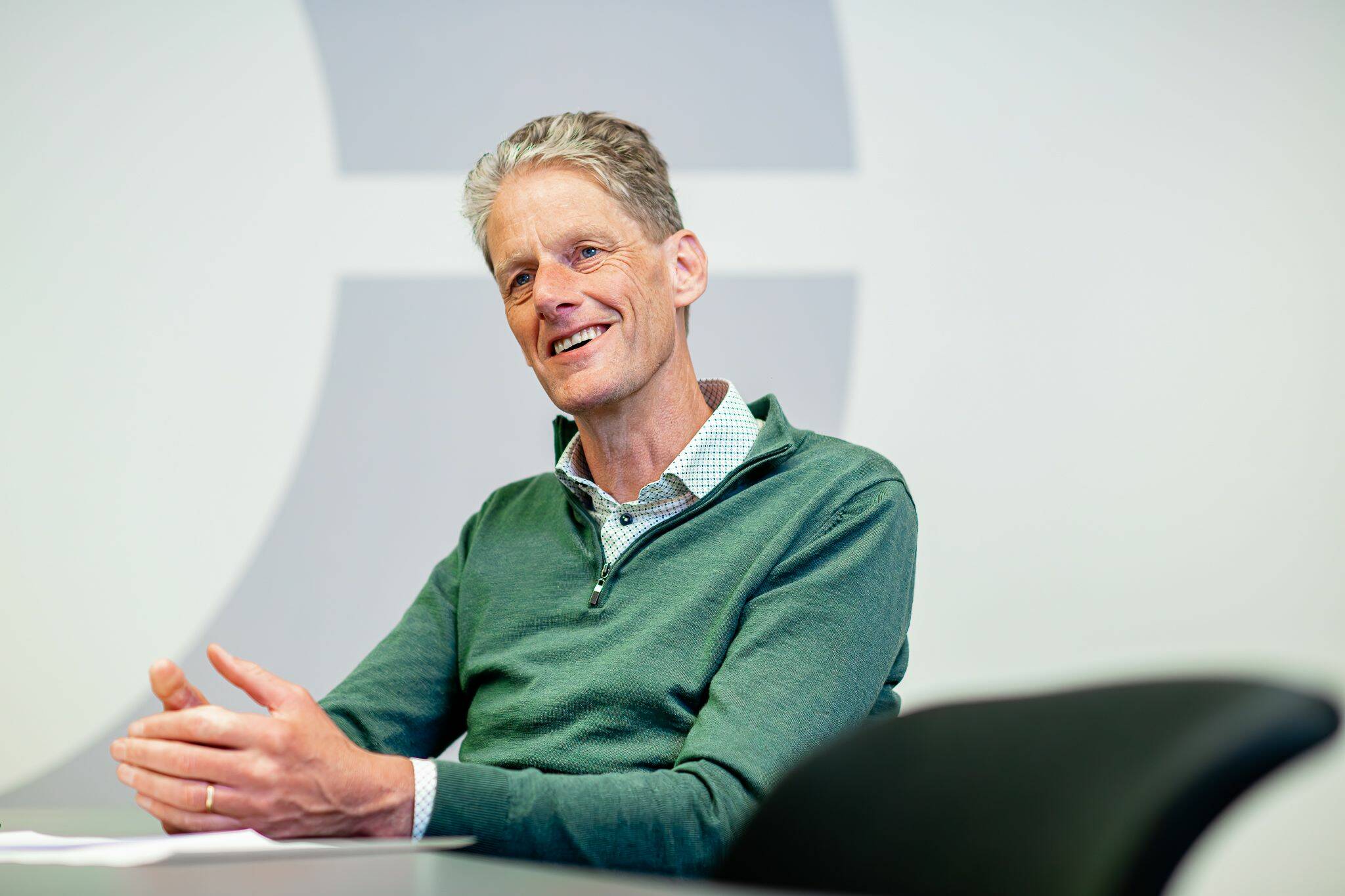
How do you see Lely, the market and farms developing towards 2035?
Gijs: 'The world is changing rapidly. Considering the fact that the development of our new innovations takes six to eight years, we need to think ahead and understand what farming and Lely will look like in 2035. To stay relevant both now and in the future, we’ve identified three long-term focus points: technological leadership, satisfaction, and a balanced portfolio.
We want to maintain our technological leadership in robotics and data. Being a family business, having a long-term vision and making high investments in innovation help us to keep that position. Satisfaction not only applies to our customers – the farmers – but also to our employees and Lely Centers in the field. We need them; we cannot do it alone. And last but not least, in terms of our balanced portfolio, Lely is not just active in robotic milking, but also in robotic feeding and manure cleaning. With Horizon and the valuable data provided by our robots, we can add much more value to a farm than milking alone.'
Gijs Scholman
Gijs joined Lely as Chief Commercial Officer in April 2013
He grew up on a dairy farm and studied animal science at the Agricultural University of Wageningen, the Netherlands. He also did an MBA at Henley Management College
He has a passion for the outdoors and enjoys gardening, hiking, running and skiing
Alejandro Mulcahy
Since graduating from university in 1998, Alejandro has worked at several different dairy businesses, including in New Zealand to gain international experience
Since 2002, Alejandro has been managing ‘Las Chicas’, the family dairy farm he grew up on in Nueve de Julio, Buenos Aires, Argentina
He is married to Silvina, who is a veterinarian and shares his passion for dairy farming. They are the proud parents of Juan Martin (17) and Emilia (13)
Considering these circumstances, how can Lely help you make the farm more futureproof?
Alejandro: 'Besides finding out which cows are better able to adapt to this kind of climate, I think there is a huge opportunity when it comes to the grass. In Argentina, we have a lot of different grass types, like ryegrass, fescue and alfalfa. In times of drought, we use more alfalfa, which can resist the heat. How great would it be if we could measure the amount of grass available and the growing rates? Such a tool would allow us to use the grass more efficiently and lower the costs. Additionally, in the case of drought and heat, cows prefer to eat beneath a roof. This might offer opportunities for the use of Lely Exos to harvest and gather fresh grass. There is a lot of work to be done!'
Alejandro, do you recognise your farm in the farm types that Lely has identified?
Alejandro: 'I recognise aspects of all three different farm types. We are mainly grass-based; our cows spend all of their time in the field and get most of their nutrition from grass. We have approximately 1,500 cows, which makes us a pretty large farm by Argentinian standards. And our farm is family-owned. As a grass-based farm, we are facing a strong need to adapt in the years to come. In recent years, we have experienced long periods of drought and extensive heatwaves. This affects not only the grass growth, but also our cows. One of our main challenges is how to adapt our farming systems to this new climate situation.'
'We need to understand what farming will look like in 2035'
"One size fits none", which is why we have identified three unique farm types as part of our vision on the Farm of the Future. Each farm type – family-owned, grass-based and large-scale – is shaped by different drives and operating routines. Although Alejandro Mulcahy’s farm in the Argentinian province of Buenos Aires can be classified as grass-based, it has aspects of all three farm types. For this edition of Boardwalk, Alejandro talked to our Chief Commercial Officer Gijs Scholman: 'If we can’t develop a farm system that meets the dairy consumer’s approval, we’re not doing a good job.'
BOARDWALK
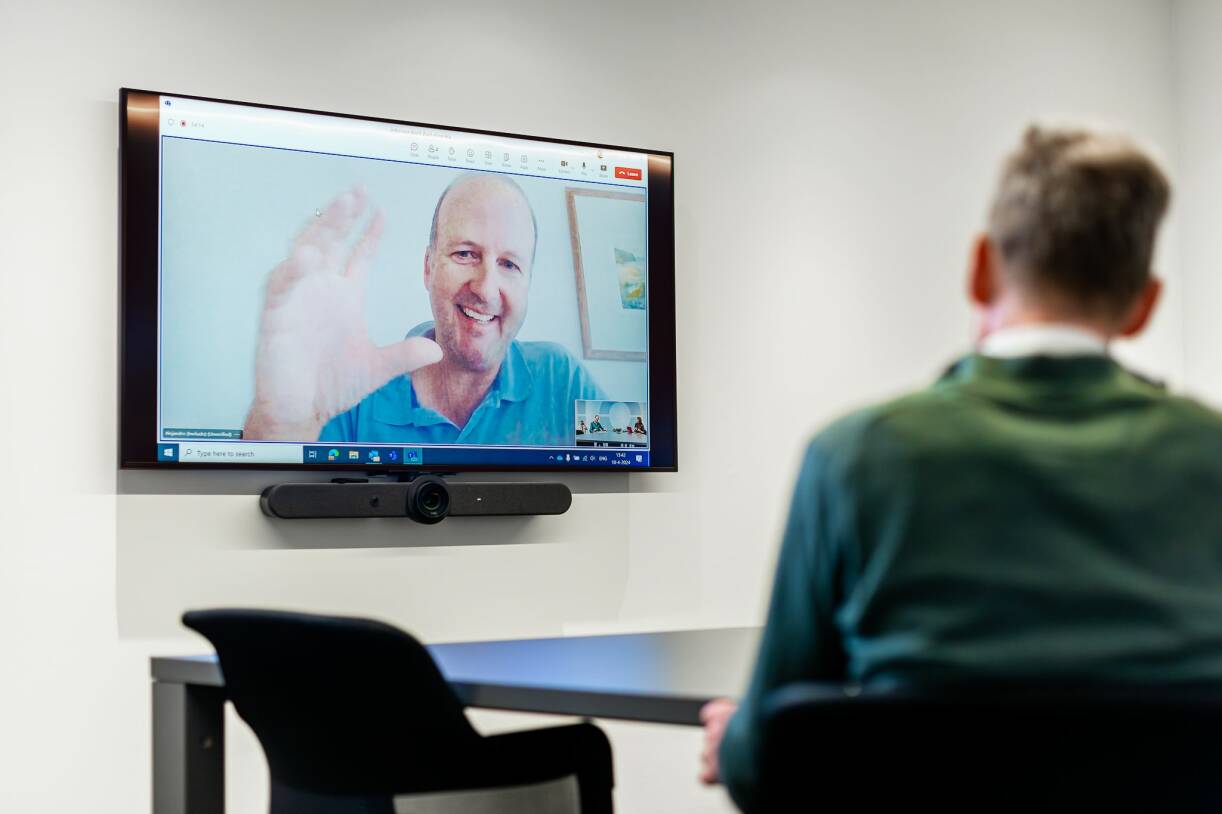
Alejandro: 'We think a lot about tomorrow, but we also look further ahead into the future. We agree with Lely on the importance of customer satisfaction, which also includes the satisfaction of the consumer. Dairy needs to be traceable and affordable for everyone. Moreover, the consumer demands transparency about welfare, both of our animals and our employees. In 2035, we expect that people will want to work fewer hours. This means offering even more options to work remotely. We’re already moving towards that with our robots, but I expect it to increase even further.'
Gijs: 'Lely shares that vision. Consumer buy-in is indeed one of the most critical aspects of the Farm of the Future. If we can’t develop a farm system that meets the dairy consumer’s approval, we’re not doing a good job.'

